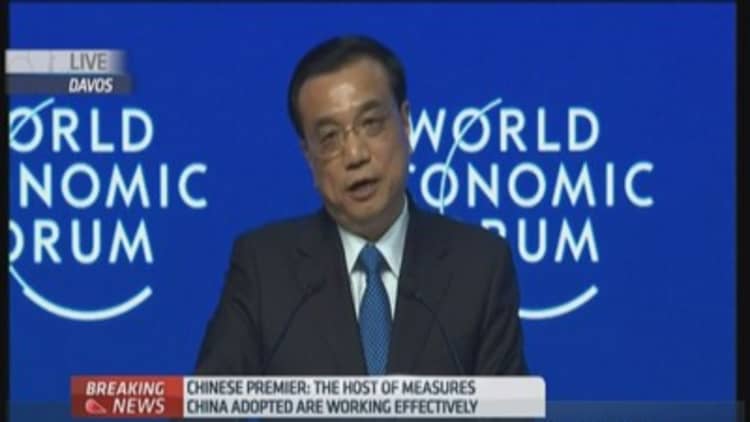Shanghai has ditched its official economic growth target for 2015, becoming the first major city or province in China to abandon such metrics as government policy shifts towards a focus on growth quality over quantity.
The move signifies both a nationwide move to switch focus from hitting annual targets with some of the fastest growth rates in the world — now that those rates are waning — as well as an effort to de-link growth from promotions at the local level.
Growth in gross domestic product has long been a key metric to evaluate the performance of local officials, helping to determine whether they were promoted. But President Xi Jinping last year said that "we can no longer simply use GDP growth rates to decide who the [party] heroes are".

At least 70 smaller cities and counties abandoned GDP targets last year, mostly in areas with high poverty rates and those with special agricultural or ecological value.
But the move by Shanghai — one of four Chinese megacities with province-level administrative status — marks the first such move by a highly developed urban area. At least two municipal districts in Shanghai had previously cancelled gross domestic product targets for 2015, the official Xinhua news agency reported.
Read MoreHow China views the state of the global economy
Shanghai will "grow steadily, continue structural optimization, and further increase quality and efficiency" in 2015, Shanghai mayor Yang Xiong said in his government work report to the city's legislature on Sunday.
Analysts say excessive focus on gross domestic product has contributed to environmental degradation and urban sprawl as officials encouraged heavy industry and bulldozed agricultural land to build housing developments.
"It's quite significant. The government is moving away from GDP targets and focusing on other metrics that are more important, like inflation and employment," said Hong Hao, managing director for research at Bocom International, the international investment banking arm of Bank of Communications in Hong Kong.
More from The Financial Times:
Opec chief says oil prices could soon rebound
Syriza's electoral win is a chance to strike a deal
Shanghai to pay stampede victim families
Mr Yang said Shanghai's growth had fallen to 7 per cent in 2014. The city's 7.5 per cent target for 2014 matched the central government's nationwide goal. China's national economy grew 7.4 per cent last year, the slowest in 24 years and the first time since 1998 that growth fell short of the official target.
Mr Yang said the government would focus on developing its free-trade zone, including promoting greater use of the renminbi for cross-border transactions.
The central government traditionally announces its annual growth target at the national parliament meeting in March each year. Last year Premier Li Keqiang signaled greater flexibility by announcing the 2014 target at "around" 7.5 per cent.
Mr Hong expects reduced emphasis on GDP growth this year.
"They'll set a growth target but with a lot of conditions attached," he said. "The basic message will be, 'this is how fast we're trying to grow, but if we don't get there it's OK'."

